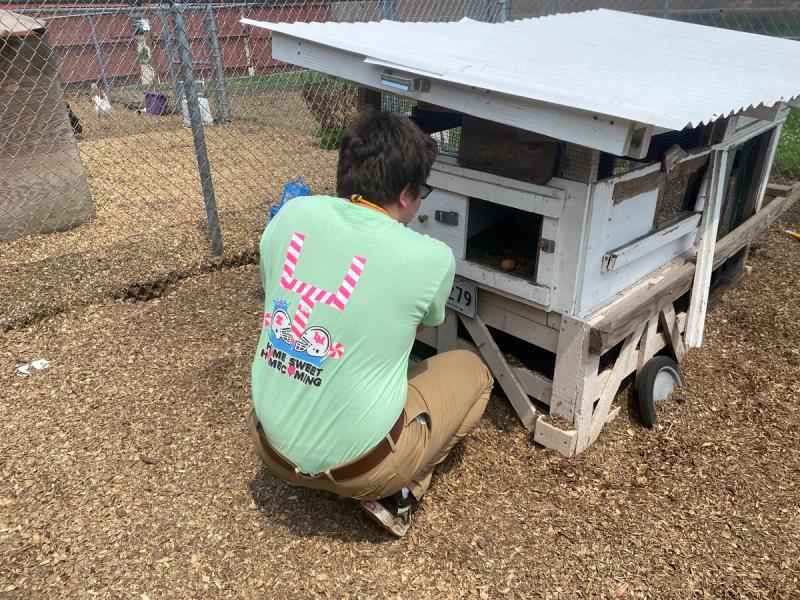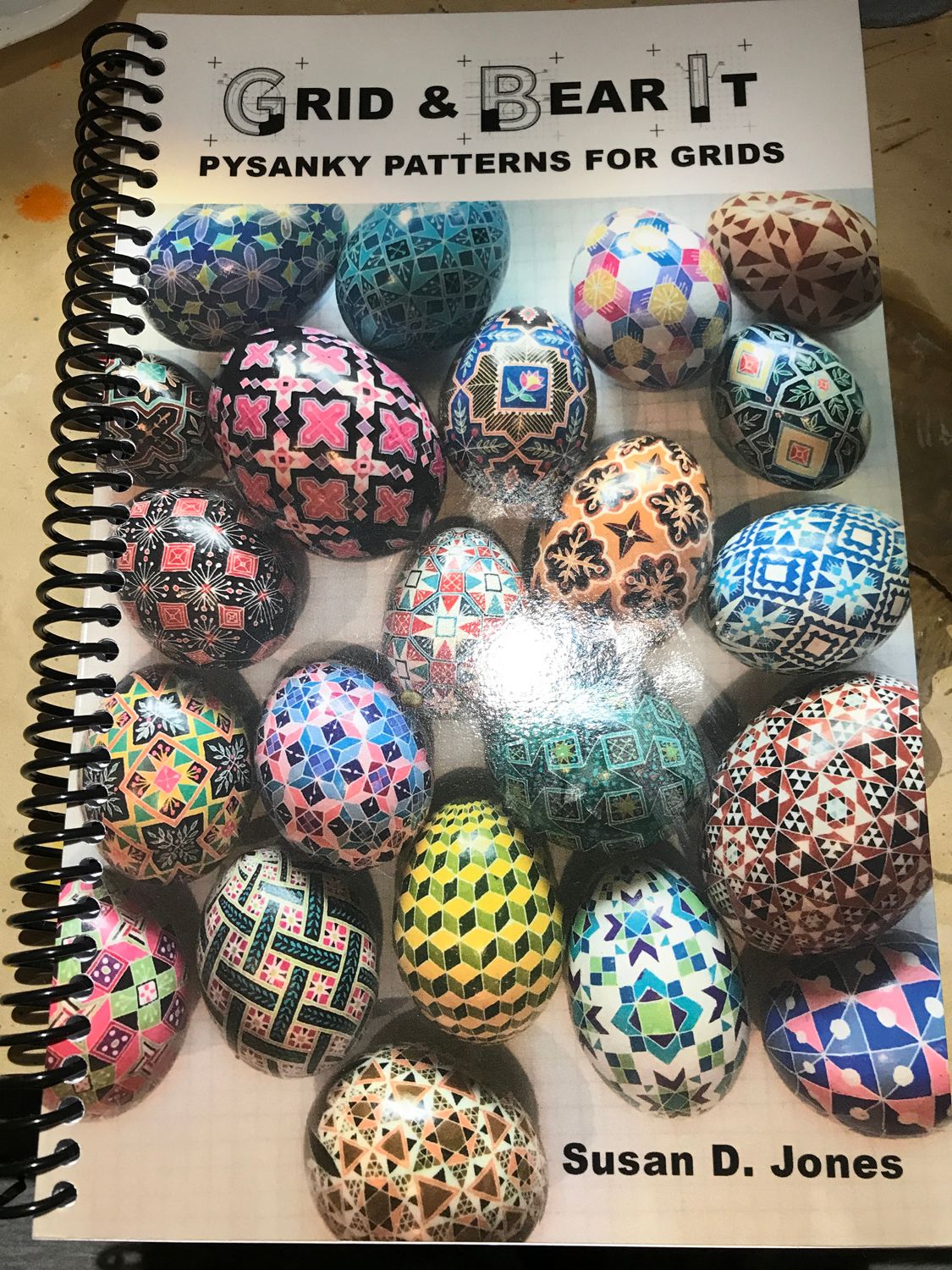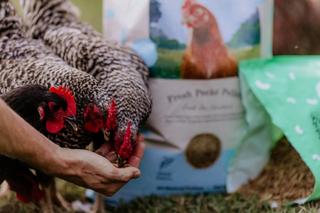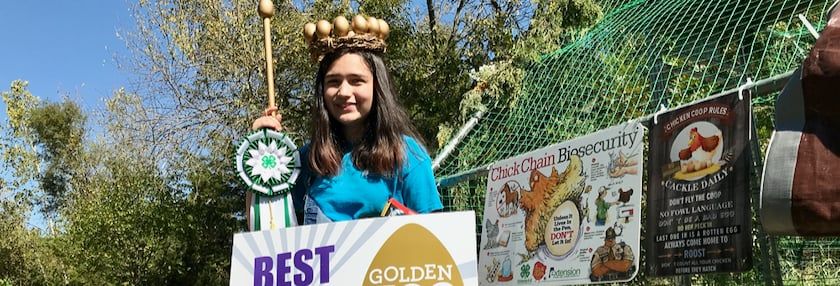Transforming a High Schooler Into a Chicken Farmer
The Story of a High Schooler’s Journey With Chickens


Being a chicken keeper is not for the faint of heart. Whether you care for a small flock of chickens or you’re responsible for your school’s flock, all chicken keepers face the same challenges. Some days, it’s life and death. Other days, you put all your energy into a sick chicken … and she pulls through! Unlike most students who rush to clubs or sports after the last bell, Aiden Fritz heads to his high school’s coop for a hands-on learning experience caring for his agricultural department’s hens and roosters.
Meet Aiden Fritz
According to a 2018 Bayer study in collaboration with the National 4-H Council, only 22 percent of schools teach agricultural science. Fritz’s school, Zachary High School, North of Baton Rouge, is part of this small percentage. Learning through living is a best practice for curriculum design in agricultural and Future Farmers of America (FFA) programs. These foster and encourage a student’s commitment to personal growth. Fritz is a shining example of why teaching young people about agriculture instills responsibility. Chicken Whisperer Magazine had an opportunity to talk to Fritz before he graduates in late May and passes the torch to other students.
Learning Through Living
Fritz is different from a typical student who attends a high school with a traditional curriculum. His after-school gig is caring for his high school’s flock of 12 chickens and five roosters.
He told Chicken Whisperer Magazine about his daily routine as a chicken keeper and his feelings about this experience after three years. His FFA teacher, Melissa Brumbaugh, plays a significant role in teaching her students how to care for the program’s chickens, rabbits and goats
“When she sees students taking an interest, she pushes them to participate in her classes,” Tabitha Fritz, Aiden’s mom, told Chicken Whisperer Magazine.
The perk for taking care of the chickens? Fritz takes home fresh farm eggs every day!
“My responsibilities for them are only while I am at school, and because I have autism, I am allowed extra time to get my work done. I have taught some of my fellow students about how to identify if one of the chickens is broody and how they will act. Our agriculture classes are very hands-on at my school,” Fritz said.
Fritz said that he was taught to handle the chickens and eggs properly. His advice for other students? “They should take time to learn about the different types of chickens and be interested in them. And always be willing to ask questions.” His favorite chicken, Nightshade, is a black Australorp.

Daily Grind
From feeding to cleaning to monitoring the chickens’ health, Fritz spends about an hour each morning caring for the chickens.
“My daily routine is checking them for eggs. Then, I will feed and water them. After that, I will look over each chicken to make sure they are well. They are all layer chickens, but we also have five roosters. The challenge is mainly keeping them in their coop area. They get out a lot and will go into the goat area or run into the garden. The worst is if they sneak through the red gate that leads to the road on campus. So making sure they stay in their enclosure is the biggest challenge,” Fritz said.
Every chicken keeper faces the challenge of keeping chickens in their outdoor run at some point.
“We have been lucky and haven’t had a chicken get sick yet. But I do look over them for common problems like checking their feet for bumblefoot.”
Golden Eggs
You’d think chickens lay golden eggs when keepers describe how much they’ll do to keep their flock safe.
“The most memorable experience was when we were having a storm, and I needed to get the chickens in the coop; some were running all over. It was super muddy, so I fell in the mud, and my uniform was covered in dirt. One of the roosters, I named Side Swipe, is really hard to catch because he is really fast,” Fritz said.
Life often deviates from the perfect images portrayed on social media. There are days when, instead of picturesque moments, you find yourself literally or metaphorically face down in the mud, trying to catch a rooster.
Beyond the Coop
Fritz practices patience, kindness, compassion and empathy when caring for the school’s chickens. Spending 700 hours chicken keeping over three years adds up! This is a lot of hands-on care, and his FFA program made him a steward of the school’s chickens but also an advocate for sustainable living and agricultural education.
“This experience has impacted me by giving me the time to learn more about chickens and find that I enjoy them as an animal. I even have my own chickens at home now. It has opened up the possibility of working with animals as a job,” Fritz said.
“I see them as having huge potential for finding a job. Because I enjoyed them so much, I am considering job fields where I could work with animals or maybe something broader, agriculture-wise, like the Department of Agriculture.”
The Next Generation of Farmers
Throughout his interview, Fritz emphasizes the importance of focus and presence, underlining how these qualities have granted him the patience and keen eye to discern between different types of chickens and understand why such distinctions are crucial. More than just identifying breeds, Fitz has also spent considerable time learning about chicken illnesses affecting poultry. This depth of knowledge and hands-on experience didn’t come overnight; it resulted from dedicated learning and practical application.
Zachary High School’s Future Farmers of America (FFA) program shaped Fritz’s path toward agriculture, specifically in poultry farming. This immersive experience fostered a deep understanding and appreciation for the intricacies of farming life, far beyond what can be learned from poultry books alone.
With the skills gained from his education, he confidently cares for his flock at home. This personal commitment underscores the significant influence that comprehensive agricultural programs like that of Zachary High School’s FFA can have on students. By nurturing interest and providing a solid foundation of farm practices, FFA programs create the next generation of well-prepared farmers to contribute meaningfully to the field.
Tags:Featured

Chicken Whisperer is part of the Catalyst Communications Network publication family.











